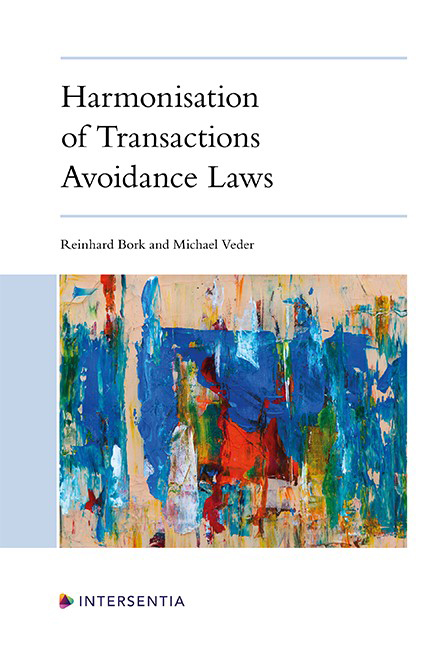Chapter 3 - Topics to be Addressed
Published online by Cambridge University Press: 26 May 2022
Summary
OVERVIEW
We have explained in Chapter 1 that our methodological approach to drafting a proposal for a harmonised transactions avoidance law is a triad. The first step is determining the principles of insolvency law in general and of transactions avoidance law in particular; this has been completed in Chapter 2. The second step is the attempt to determine the issues which are to be regulated in a harmonised transactions avoidance law to satisfy and balance the interests involved in the best possible way. This shall also be done on a principle-oriented basis. We do not proceed from the national laws currently in force in the Member States of the European Union but rather start from the question of which topics should be addressed in our proposal from a principle-based point of view for an adequate and acceptable transactions avoidance law, entirely irrespective of whether or not these topics are already regulated in a national jurisdiction. The present chapter is dedicated to this task.
The idea of this chapter is not to favour certain solutions, to elaborate concrete formulations, and to present a complete set of rules on transactions avoidance law; this will be done in Chapter 4. The scheme of the present part of the book is rather to elaborate typical issues of transactions avoidance law, present typical solutions, and analyse the pros and cons of these solutions as supported by the principles of transactions avoidance law. To this end, we will deal with general prerequisites applicable in all transactions avoidance cases (II.), examine the prerequisites of, and defences against, possible avoidance grounds (III.), and finally address the legal consequences of transactions avoidance (IV.), which will be done entirely from a principled perspective.
Occasionally, reference to existing national transactions avoidance laws will be made. However, this is not an evaluation of the national laws as ascertained from the completed questionnaires, which will be done in more detail in Chapter 4. Instead, similar to the approach in Chapter 2, the laws of England and Wales, France, Germany, and the USA are used as examples for the more general questions to be answered here.
- Type
- Chapter
- Information
- Harmonisation of Transactions Avoidance Laws , pp. 87 - 138Publisher: IntersentiaPrint publication year: 2022



